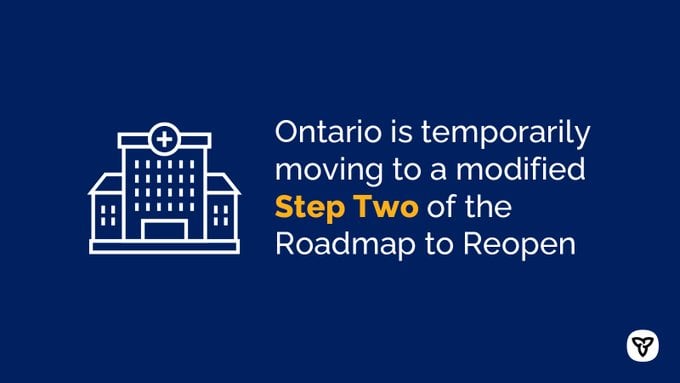
Archives
- Home
- News
- Businesses
- Moving to Modified Step 2 & Rebates Available for Business
Moving to Modified Step 2 & Rebates Available for Business

In response to recent trends that show an alarming increase in COVID-19 hospitalizations, the Ontario government, in consultation with the Chief Medical Officer of Health, is temporarily moving the province into Step Two of its Roadmap to Reopen with modifications that take into account the province’s successful vaccination efforts.
Following the briefing today by the Premier, the province will return to the modified version of Step Two of the Roadmap to Reopen effective Wednesday, January 5, 2022 at 12:01 a.m. for at least 21 days (until January 26, 2022), subject to trends in public health and health system indicators.
These measures include:
- Reducing social gathering limits to five people indoors and 10 people outdoors.
- Limiting capacity at organized public events to five people indoors.
- Requiring businesses and organizations to ensure employees work remotely unless the nature of their work requires them to be on-site.
- Limiting capacity at indoor weddings, funerals, and religious services, rites and ceremonies to 50 per cent capacity of the particular room. Outdoor services are limited to the number of people that can maintain 2 metres of physical distance. Social gatherings associated with these services must adhere to the social gathering limits.
- Retail settings, including shopping malls, permitted at 50 per cent capacity. For shopping malls physical distancing will be required in line-ups, loitering will not be permitted and food courts will be required to close.
- Personal care services permitted at 50 per cent capacity and other restrictions. Saunas, steam rooms, and oxygen bars closed.
- Closing indoor meeting and event spaces with limited exceptions but permitting outdoor spaces to remain open with restrictions.
- Public libraries limited to 50 per cent capacity.
- Closing indoor dining at restaurants, bars and other food or drink establishments. Outdoor dining with restrictions, takeout, drive through and delivery is permitted.
- Restricting the sale of alcohol after 10 p.m. and the consumption of alcohol on-premise in businesses or settings after 11 p.m. with delivery and takeout, grocery/convenience stores and other liquor stores exempted.
- Closing indoor concert venues, theatres, cinemas, rehearsals and recorded performances permitted with restrictions.
- Closing museums, galleries, zoos, science centres, landmarks, historic sites, botanical gardens and similar attractions, amusement parks and waterparks, tour and guide services and fairs, rural exhibitions, and festivals. Outdoor establishments permitted to open with restrictions and with spectator occupancy, where applicable, limited to 50 per cent capacity.
- Closing indoor horse racing tracks, car racing tracks and other similar venues. Outdoor establishments permitted to open with restrictions and with spectator occupancy limited to 50 per cent capacity. Boat tours permitted at 50 per cent capacity.
- Closing indoor sport and recreational fitness facilities including gyms, except for athletes training for the Olympics and Paralympics and select professional and elite amateur sport leagues. Outdoor facilities are permitted to operate but with the number of spectators not to exceed 50 per cent occupancy and other requirements.
- All publicly funded and private schools will move to remote learning starting January 5 until at least January 17, subject to public health trends and operational considerations.
- School buildings would be permitted to open for child care operations, including emergency child care, to provide in-person instruction for students with special education needs who cannot be accommodated remotely and for staff who are unable to deliver quality instruction from home.
- During this period of remote learning, free emergency child care will be provided for school-aged children of health care and other eligible frontline workers.
A full list of measures can be found in the news release.
In recognition of the impact the Omicron variant and additional public health measures have on small businesses, the government is expanding the new Ontario Business Costs Rebate Program.
Eligible businesses that are required to close or reduce capacity will receive rebate payments for a portion of the property tax and energy costs they incur while subject to these measures. Eligible businesses required to reduce capacity to 50 per cent, such as smaller retail stores, will receive a rebate payment equivalent to 50 per cent of their costs, while businesses required to close for indoor activities, such as restaurants and gyms, will receive a rebate payment equivalent to 100 per cent of their costs.
A full list of eligible business types will be made available when applications for the program open later this month. To improve cash flows for Ontario businesses, effective January 1, 2022, the government is also providing up to $7.5 billion for a six-month interest- and penalty-free period for Ontario businesses to make payments for most provincially administered taxes, supporting businesses now and providing the flexibility they will need for long-term planning.
The government is also exploring options for providing further targeted and necessary supports for businesses and workers impacted by the province’s move into a modified Step Two of the Roadmap to Reopen, including grants. The government will also continue to call on the federal government to come to table and help us support Ontario businesses and Ontario workers by allowing eligible businesses to defer HST and to enhance supports available to workers affected by current public health measures.
Please click here for the most comprehensive list of the modified restrictions for your reference.